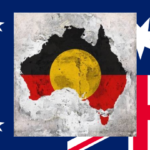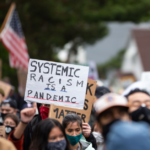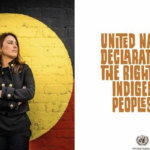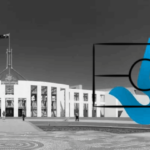“Deeply Ingrained Systemic Racism”: Wunna Nyiyaparli Elder Ailsa Roy on the Plight of Her People
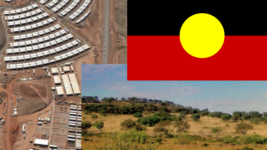
The Wunna Nyiyaparli people of Western Australia’s eastern Pilbara region live close to land and their traditional way of life and customs, yet encroachments by mining companies onto their iron ore rich Country has resulted in a situation whereby they’re increasingly locked out of their own land to the point that law enforcement charges of trespass are a possibility.
Due to concerns about the loss of access to Country, without which the Wunna Nyiyaparli are no longer able to exercise their own culture and hence, their entire way of being is under threat, the group of 200-odd First Nations people filed a 2012 native title claim that covers the land that they ‘speak for” or hold rights over, which is also known as the Roy Hill Pastoral Lease.
The Wunna Nyiyaparli 2012 claim sits within the broader borders of the 1998 native title claim of the Nyiyaparli people, who are a larger language group to whom the Wunna Nyiyaparli are part of, and this earlier claim area covers all Wunna Nyiyaparli Country.
Gina Rinehart runs the Roy Hill mine on Wunna Nyiyaparli Country, while Andrew ‘Twiggy’ Forrest’s Fortescue Metals Group operates the Christmas Creek and Cloudbreak mines on the larger Nyiyaparli claim. Rinehart’s Roy Hill mine had almost tripled its dividends over the financial year 2023-24.
The Federal Court ordered in 2015 that the Wunna Nyiyaparli claim should be heard along with that of the Nyiyaparli, and a special question should be deliberated upon, which consisted of whether the Wunna Nyiyaparli are actually part of the larger Nyiyaparli language group, even though the Wunna Nyiyaparli had passed the native title registration test, which is based on traditional law and customs.
By the time three Wunna Nyiyaparli people appeared in the Federal Court in mid-2016 to argue their claim, they found that proceedings were focused on the special question, and as they weren’t prepared for it, they were not able to participate in the proceedings, and the court went on to rule that they are not real Nyiyaparli people, which meant their native title claim had been voided.
Ongoing colonial mindset
Since the Federal Court fiasco, Wunna Nyiyaparli elder Ailsa Roy has teamed up with Sydney-based human rights lawyer Scott Calnan, and she lodged a complaint with the United Nations Human Rights Committee (CCPR) on 2 April 2019, which resulted in it ordering the Australian government last July to provide the Wunna Nyiyaparli with a legal remedy to their situation within 180 days.
As Calnan has explained to Sydney Criminal Lawyers, the CCPR found that the legal process Australia subjected the Wunna Nyiyaparli to had violated their cultural rights, under article 27 of the International Covenant on Civil and Political Rights (ICCPR), and the esteemed UN body further found the Wunna Nyiyaparli’s right to fair procedure, under article 14, had too been infringed upon.
Yet, attorney general Mark Dreyfus rejected the remedy order in responding to the CCPR three months late. The AG informed the CCPR in October that the Wunna Nyiyaparli were informed of the need to attend court and the reasons for that, without actually acknowledging that the correspondence was being delivered to a remote Aboriginal community with no legal representation.
Sydney Criminal Lawyers spoke to Wunna Nyiyaparli elder Ailsa Roy about her decadelong battle to save her people’s Country, the manner in which the Australian government has simply thrown the CCPR’s assessment back in its face, and how native title corruption continues to reign.
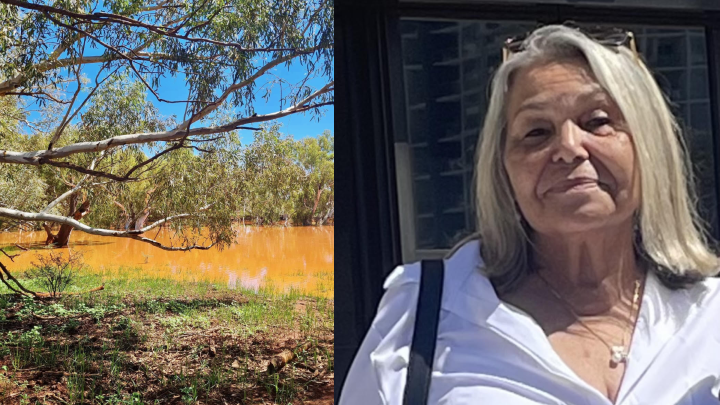
Ailsa, you lodged a complaint with the UN Human Rights Committee (CCPR) on 2 April 2019.
This relates to a January 2012 Wunna Nyiyaparli native title claim that sits within the claim region of the broader native title area established by the Nyiyaparli people’s claim of 1998.
The Wunna Nyiyaparli had lodged its claim in an effort to prevent the ongoing incursions of the local mining industry onto Wunna Nyiyaparli Country.
The complaint was taken up by the CCPR, which then produced a finding on the matter in July 2023, in which the respected international body ordered the Australian government to allow the Wunna Nyiyaparli people to have their day in court within the next six months, as this had previously been denied them.
However, on 24 October this year, the Australian government presented its response to the CCPR, and it basically told the UN body that it hadn’t done anything wrong and then it explained to the rights body why that was the case.
This process has now been underway for over a decade. So, how do you and the broader Wunna Nyiyaparli community consider what the government has done? And how do you think the response reflects on the nation of Australia?
Ailsa: This is a blatant display of colonialism that seems to be the norm for the Australian government. The behaviour is not surprising.
This is the ongoing refusal of the federal government to adhere to the international standards of ‘fair play’ in its dealings with the rights of its Indigenous people, in this instance that being the Wunna Nyiyaparli people.
This denies the Wunna Nyiyaparli the right to be heard fairly in court and the right to negotiate for their traditional lands in the Pilbara of Western Australia.
To refuse the international guidance by the United Nations is like stepping back in time, when a racist government could do and say whatever they felt.
This could be equated to the ‘White Australia era’, 1850 to 1950, when Australia systematically promoted the wellbeing of the Caucasian races whilst denying the rights of anyone of colour.
This portrays Australia in a very negative light: a deeply ingrained systemic racism that could be considered, to its shame, the ‘norm’ in Australia.
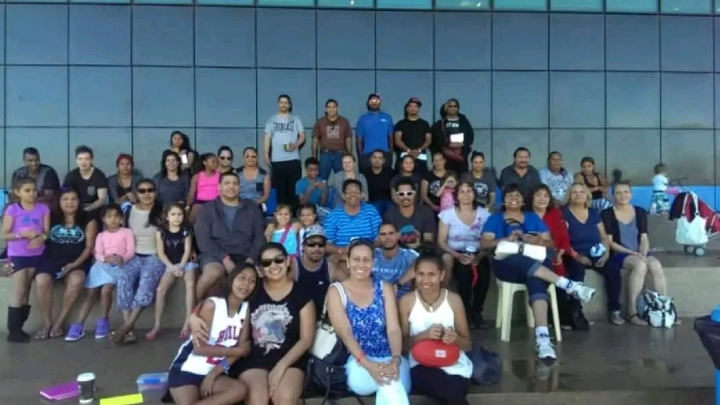
The Federal Court ruled in late 2015 that the 2012 Wunna Nyiyaparli claim should be heard alongside the broader 1998 Nyiyaparli claim, and the court should also consider a separate question regarding whether the Wunna Nyiyaparli are really Nyiyaparli.
Your people were surprised that the court suggested it would contemplate the separate question.
Your legal representation at that time had drafted consent orders that were submitted to the court stating you agreed to the separate question, even though you’d specifically told them not to.
Then in March 2016, the lawyer presented a form notifying all that they would no longer be representing the Wunna Nyiyaparli.
This resulted in a breakdown of communications with the court, which saw three Wunna Nyiyaparli representatives turn up to argue their native title claim in court in July 2016, only to then find out that the proceedings on the day would be considering the separate question.
And as the Wunna Nyiyaparli representatives were not prepared to argue the separate question, they were shut out of the proceedings and the court went on to find they’re not really Nyiyaparli people, which then further resulted in their native title claim being quashed.
They’re the basic facts laid out, so how do you describe why this all happened in the manner that it did?
Ailsa: It is corruption of the legal system by the mining companies. The creation of the separate question was created to discredit Wunna Nyiyaparli Indigenous heritage that had never been in question previously.
The separate question was created to cause confusion and misunderstanding against a people that were not fully prepared to fight against the legal system. It has wrapped the Wunna Nyiyaparli people up in ‘red tape’ for over a decade.
The lawyer has never been charged for misrepresenting the Wunna Nyiyaparli. When agreeing to submit to the separate question, the lawyer did not act in the best interest of his client and did much damage to the Wunna Nyiyaparli people.
In Western Australian parliament on 21 March 2000, then WA MP Geoff Gallop raised a claim that had been made that day about Kingstream Steel being involved in “funding native title claims over competitors’ leases”, which, when put to then state premier Richard Court, garnered the reply that “all other mining companies” had been doing the same.
Gallop, then set to be the next WA premier, recalled that the issue had been raised in parliament in relation to another company the year prior, and the then Labor MP added that the “unprincipled people intervening” in native title were creating huge issues.
How do you consider native title has now been operating over the more than a decade since the National Native Title Tribunal accepted your claim in its initial stage in 2012, which was then voided by the Federal Court four years later?
Ailsa: This could be seen as another example of private sector funding native title claims against their competitors: the financial support given by Gina Rhinehart, FMG, LPMM and BHP to other tribes within the Pilbara.
It is corruption of the legal system by the mining companies by pouring funding into native title claims for their own benefit.
It causes confusion and has hindered the ability of the Wunna Nyiyaparli people to negotiate.
You further suggest that the local land council that oversees the region where you live, managed to steal your land and rights out from underneath you.
Can you elaborate on why that is the case?
Ailsa: On 24 March 2016, Yamatji Marlpa Aboriginal Corporation (YMAC) sought an interlocutory hearing for Wunna Nyiyaparli to be the lead application for the separate question and Wunna Nyiyaparli gender restricted evidence.
Justice Barker stated that ‘the minute of consent orders’ didn’t get carried into effect.
Justice Barker also advised YMAC’s Carolyn Tann to apply to the court for a copy of the Wunna Nyiyaparli gender restricted evidence and to ensure Wunna Nyiyaparli applicants received a copy of the transcript.
Later conflicting court orders for 24 March posted on the Commonwealth Courts Portal stated the Wunna Nyiyaparli had two days to give YMAC a copy of our evidence and the Wunna Nyiyaparli were the lead applicants.
The Wunna Nyiyaparli received an invoice in June 2016 from the Federal Court for setting down costs for the hearing in July, even though the Wunna Nyiyaparli did not apply for the hearing and Justice Barker did not order the separate question.
YMAC lawyers for the wider Nyiyaparli claim challenged the delegate on the Wunna Nyiyaparli registration and the case was dismissed.
YMAC CEO Simon Hawkins is the settlor for the wider Nyiyaparli Myers Trust. Stephen Wright, acting for the wider Nyiyaparli claim in court, is the lawyer for the Nyiyaparli Myers Trust. This is a conflict of interest whereby they stand to gain substantially.
YMAC used an invalid Nyiyaparli claim to negotiate agreements. The land council then removed a group of people in a Form 1. And since it did not get registered, it went back to the 2005 claim, which was superseded by the new application.
The Wunna Nyiyaparli claim was the overlapping and successive claim for the BHP Mining Area C Agreement (MACA) and the Rio Tinto Yandicoogina Land Use Agreement (YLUA), which covered the Innawonga, Bunjima and Nyiyaparli claim areas and included several Rio Tinto and BHP mines.
Wunna Nyiyaparli Native Title registered with exclusive rights, and YMAC had no control over the Wunna Nyiyaparli applicants like they did with the wider Nyiyaparli claim group.
The wider Nyiyaparli hearing to remove the three Wunna Nyiyaparli respondents, who were also applicants for the Wunna Nyiyaparli native title claim, used the separate question and Wunna Nyiyaparli Federal Court file number in the wider Nyiyaparli hearing to remove Wunna Nyiyaparli respondents from their claim and to dismiss the Wunna Nyiyaparli claim.
Three separate orders were made for the separate question. HopgoodGanim lawyer Jonathon Fulcher filed notice of appeal late and requested a minute to dismiss the Wunna Nyiyaparli claim.
Judgement orders for the appeal state the only adverse outcome of the separate question, besides answering the question in the negative, was the removal of the respondents.
Cost orders for the separate question state that Wunna Nyiyaparli would not have incurred costs had the Wunna Nyiyaparli informed the court they did not want to participate.
A 2017 Federal Court appeal judgement purporting to serve and proceed with an appeal against an order for the removal of three Wunna Nyiyaparli respondents to an action was not possible due to section 24(1AA)(b)(i) of the Federal Court of Australia Act 1976 (Cth).
We were appealing against our claim being dismissed not being removed as respondents.
Also, the judgement states that the Wunna Nyiyaparli did not apply for leave to appeal which makes me believe our claim was not dismissed.
A final question to you, Ailsa, the CCPR is a significant international body, and while its findings are nonbinding, they carry a lot of weight.
So, for the Australian government to turn around and explain to the experts that they’d gotten it all wrong seemed quite callous.
What do you consider the denial to provide you with remedy following a CCPR order says about the Australian government?
Ailsa: The explanations by the Australian government were to be expected and just another example of their colonial thinking.
They obviously feel they can act and do whatever they want, and this colonial ideology is being backed by the rich mining companies for their own purpose.
It’s shameful behaviour. It is like the biblical fight of a young David against Goliath.
And a last question to Ailsa’s nephew Brett Brenton. Brett, what are your thoughts on the way the Australian government has simply turned around and dismissed the orders of the respected UN body?
Brenton: We are disgusted by the Australian government. Their arrogance and disrespect of the international body shows how duplicitous they are.
On the one hand, they ran a campaign for Aboriginal equality and then rejected our rights by not granting access to our land.
They also backed the United Nations in agreeing that Israel is committing crimes against Palestine by being an occupying power but would not recognise that they are an occupying power.
They were given powers to look after the Aboriginal people to support us in becoming self-determined and now that we have a chance to better our lives and our future generations, they deny us our opportunity.
We say stop the oppression, stop the greed and stop destroying our Country. Give us back our dignity, give us back our identity and give us back our Country.
The government wants us to be destitute so that they can take everything from us and continue to keep us down.
This attitude from the top filters down and allows the culture of racism and intolerance towards Aboriginal people.


